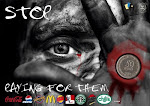Salam
Recently, 1 of the most prominent figures painting the arena of Palestinian-Israeli conflict, Dr Norman Finkelstein paid a visit for the first time to Prague. The people here were honoured for his presence, at least for my personal point of view.
I was excited more than ever. That was probably be the only time in my life that I have a chance to see Dr Finkelstein in person. It feels like meeting an artist or something like that. Before this I just heard his name and some books that he wrote, and some of his videos in the youtube. I feel honoured somehow.

from the screen of our video recording ;p
The talks were held in a hall at Casa Gelmi in Prague, and in the Faculty of Phylosophy, Charles University, with audience about several hundred people from several countries all around Europe, which consisted of delegates, political analysers and students as well. There were supposed to be 4 talk sessions, but 1 of the talk which was scheduled on Tuesday morning was cancelled by the Academy of Science of the Charles University and the government of Czech Republic for the reason that the talk is 'one-sided' and fear of spreading 'false information' to the people. Dr Finkelstein himself expressed his shock and disappointment with the cancellation, after he went all the way from New York to give a speech and when he came over, the speech was cancelled by the authority. It's kind of weird the government here said that the talk is 'one-sided' when he has not given the speech. It seems that the Czech government limits the freedom of speech in this country.

Norman Finkelstein giving a speech at Casa Gelmi, Prague
I'm pretty sure not all of the readers know Dr Norman Finkelstein. Borned in a Jewish family, Finkelstein is an American political scientist, whose primary fields of research are the Israeli-Palestinian conflict and the politics of the Holocaust. He received his Ph. D in political science from Princeton University, and he has hald faculty positions in several famous universities in the United States. His parents survived from Ghetto in Warsaw. Throughout his career, he has constantly causes controversies by constantly condemning the occupation of Palestine by Israel. He wrote lots of books, many of which condemning the illegal and inhuman conducts of the Israel. He was also labelled as 'self-hating Jew'. He once argued that the memory of the Holocoust is just an 'ideological weapon'. This is so the state of Israel. Being accused as 'hostile' to Israel, and due to 'security reason', he is banned from entering Israel.

during the second speech at the Faculty of Phylosophy, Charles University

during the 2nd speech at the Faculty of Phylosophy, Charles University
The first talk which I listened to was about 'Mass Media and Occupation of Palestine: Image and Reality' and the second talk was entitled 'Legal Aspects of Israeli-Palestinian Conflict'.
The thing which I love about Dr Finkelstein speech was that, he discussed the topic objectively, based on facts and the international laws, where nobody could deny the facts that he brought in.
Dr Finkelstein tried to explain the audience the fact that the Israeli-Palestinian conflict is actually not 'complicated' as many of the people in this world thought. He questioned how does one account for all the media controversy swirling around a conflict which, if one examines the past, or historical record, the present or human right record and the future or diplomatic record, is remarkably UNCONTROVERSIAL.
There were dozens of international cases which are much more controversial than the Israeli-Palestininian issue. Let's just take the issue of the walls which are being built on the land of Palestine. The international law clearly states that it is illegal to build any kind of construction on other country's land. It's just the same rule like we treat our neighbour. Well, we might have a nasty, dirty neighbour or probably a neighbour who likes to make noise. Of course it is our right if we want to build a wall inside our territory between our house and our neighbour's house. Nobody cares what you want to build. Nobody cares how high is the wall that we want to build inside our house. But we cannot build a wall around our neighbour's swimming pool. The concept is simple, and it is clearly stated under the international law.
The International Court of Justice (ICJ) notes that it has no interest in any wall constructed within Israel's borders, where Israel can do what she likes. As regards the vast sections of the wall that are on Occupied Palestinian Territory: "that construction, along with measures taken previously, thus severely impedes the exercise by the Palestinian people of its right to self-determination, and is therefore a breach of Israel's obligation to respect the right."
The court rules that the wall should be dismantled and goes on to say that Israel is legally obliged to "return the land, orchards, olive groves and other immovable property seized... In the event that such restitution should prove to be materially impossible, Israel has an obligation to compensate the persons in question for the damage suffered."
Still related to the issues of the wall, probably most of us do not know that the ICJ has issued an advisory opinion on the legality of the wall being constructed by Israel in the Occupied Territories. 15 panels of judges has been appointed in this issue.
The court was forced to incidentally examine some of the so-called "Final Status" issues - the issues which must be resolved for any lasting peace in the Israeli-Palestinian conflict. There are generally held to be five: Borders, Settlements, Refugees, Jerusalem and Water. I'm not going to explain all the issues here.
Given the international composition of the ICJ and the complex and controversial issues it is called upon to judge, one might expect the rulings have been close-fought. In fact, the vote was 14-1 in favour of all points. The only judge being the dissenter of all rulings was the US representative, Judge Buergenthal. However, in a separate ruling, he explained that he agreed with his colleagues on the ruling that Israeli settlements in the Occupied Palestinian Territories are illegal under international law. Therefore there is unanimity in the International Court of Justice on this point.
And another fact is that every year the United Nation General Assembly would vote for the resolution 'Peaceful Settlement of Palestine Question'. And surprisingly, each year, the votes received suggested that the issue is actually non-controversial. For example in the year 1997 and following years, the vote was 155-2, with the negative votes being cast by Israel and United States. It's like the whole world against Israel and United States.
Thus, mathematically, it seems that the so-called 'controversial issues' in the Israel-Palestine conflict is actually NON-CONTROVERSIAL. Yet, the terms like 'controversial' or 'disputed' issues used by the media made people believe that the Israel-Palestine issue is actually very complicated.
Dr Finkelstein argued that the vast preponderance of media controversy swirling around the Israel-Palestine conflict is contrived, fabricated, the purpose being to divert attention from the documentary record and confusion about what it actually shows.

me and my friends with Dr Norman Finkelstein
I think I should just stop here, as I've just realised that I've already written quite long, even though I just mentioned about 1 issue. Anyway, as a Muslim, we have more reasons to help and sacrifice for the Palestinians, as they are our brothers, our family members. Unfortunately, most of us don't realise the responsibility. While we are busy studying, playing football, eating, organising parties, Malaysian Night or whatever night, while we are sleeping comfortably on our cosy bed, one of our family member dies everyday. Yet, we could still enjoy ourselves without thinking about them. We should feel ashamed that a non-believer understands and helps our brothers more than we do.
.gif)






0 comments:
Post a Comment